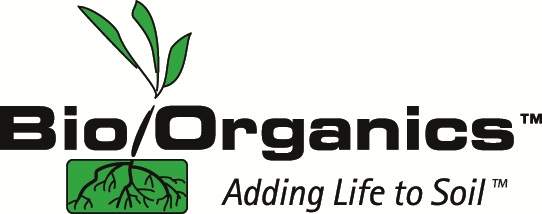Some of the best testimonials for mycorrhizal inoculations happen entirely by accident. We always encourage growers to set up a few orchard trees or vineyard grapes as checks to gauge the difference between inoculated and non-inoculated plants, but most go ahead and treat all their transplants.
Every now and then I hear from an orchardist or vineyard manager who ran short of our inoculant and unintentionally created a valid test-versus-control situation. Getting rush orders for another jar pretty much tells you the result of the comparisons. A tree or vine that lacks mycorrhizal colonization around the root system has a very difficult time uptaking enough nutrients, as many plants have very inefficient root systems. It's the mycorrhizal fungi that do the exploration of soil, not thick plant roots. In effect, the millions of tiny fungi hyphae (root threads) add tremendous soil contact for the benefit of their host plants.
Almost all plants rely on mycorrhizal fungi, and some are so dependent that they struggle to survive without the fungi on their roots. Members of the cabbage family do not seem to need mycorrhizae, but a USDA research scientist told me that he had once found the fungi in the roots of broccoli that had been harvested and near the end of their life cycle. He theorized that the fungi received no benefit from attaching to the broc roots during their regular growing season, but became scavengers as the roots were dying. After all, nothing goes to waste down there - recycling is always taking place.
Based on reports and comments from our food-crop customers over the past 15 years, I would never plant a peach, apricot, walnut, grape, melon, cherry, asparagus, strawberry, squash, potato, or tomato without putting a few mycorrhizal spores in the planting hole. Those are plants that consistently show dramatic responses to inoculation.
Apples, pears, beans, eggplant, corn, and cucumbers are also very much benefited, especially if dealing with poor soil. Besides inoculation, we advise blending in good amounts of minor and trace minerals - regardless of whether you are following an organic program or not. Plants can be stunted if any essential mineral is missing from the surrounding soil. After all, the mycorrhizal fungi cannot transport any elements that are not present in the soil. (It should not be required to re-load the minerals every year - maybe every 3-5 years should do.)
Quick-season plants such as lettuce, spinach, turnips, or radishes will probably be ready for harvest before an inoculation has time to have much effect, unless the fungi are pre-activated with an early season cover crop. I generally don't bother inoculating these plants in my garden - although some hydroponic lettuce growers report good results from adding our micronized product. To be honest, I think it might be the finely ground mineral carrier material that gives them the benefit as much as the mycorrhizal spores.
There are the same sort of big-to-slight responses to mycorrhizal inoculation with ornamental plants. Roses and conifers are the best-recognized strong responders to inoculation, but most all others from turfgrass to bedding flowers will survive and perform better with the fungi on their roots. We have many landscapers and plant nurseries as regular customers.
Actually, it makes wonderful sense to introduce mycorrhizal fungi as a standard part of a nursery routine. Then, the fungi on the transplant's roots have been given a head start and can immediately begin transporting nutrients and moisture to the plant, as well as giving protection against harmful fungi and other soil pathogens. We have some potting soil manufacturers who are blending our MycoMinerals product into their premium mixes, and tell us that their nursery customers can see a real difference.
I really wish that more good controlled in-field studies would be done on biological growing techniques, but aside from a few Extension Agents who are now suggesting mycorrhizal fungi for problem soils, commercial growers get mostly advice on how to use chemicals and synthetic fertilizers. I'd invite any researcher who can link up with a grower or plant nursery to contact me. I'd be happy to help arrange more non-accidental tests.
Cheers, and good growing my friends,
Don Chapman
President
